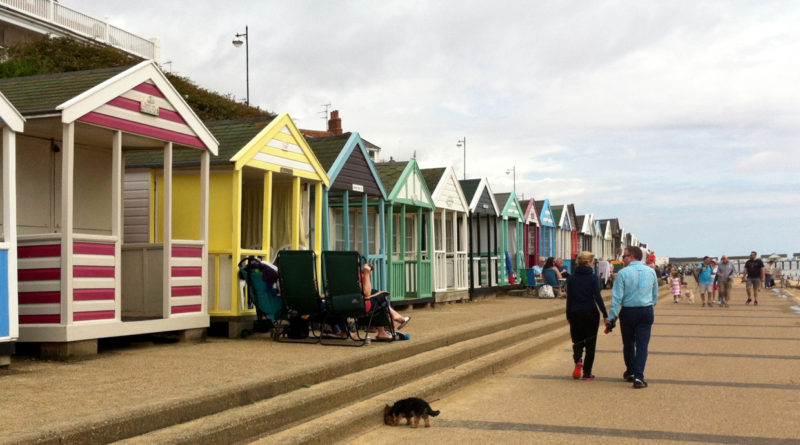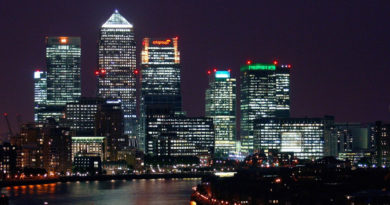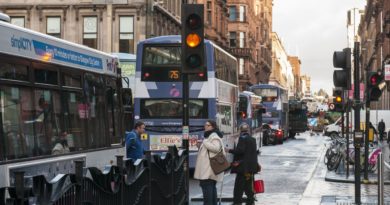Brexit testimony: “I look foreign, don’t I?”
After a long melancholic call with a friend, I followed his advice and wrote down what Brexit means for me. I am a British citizen married to a EU national. As we approached our 13th wedding anniversary, we were shaken by the very idea of the referendum, for the uncertainty we feared this event could bring. The impact of the results was actually worse. It was so strong that for the first time our daughter, who has always been proud of her origins, suddenly became aware of her mixed nationality, of the uncertainty, and perhaps the hostility, she would face in Great Britain. “I look foreign, don’t I?” she asked in the days after the referendum. Strange question, because we usually do not wake up thinking “I am British” or “I am from the EU” or any other nationality.
After the first 24 hours endeavoring to come to terms with this unexpected grief, I began to notice the wave of resentment of British people towards foreign nationals of all cultures and religions. I had never experienced anything at this level within my home county, one of those with the largest majority for Leave. There was a complete change in the tones from one day to another. People were not interested in what others had to say. I felt the need to step up to support my husband. I went through the different stages of grief, the mind entangled trying to make sense of this democratic decision, yet utterly unable to understand the sudden feeling of persecution and attack. The result was enough in itself to throw our future into uncertainty. But the change in attitudes, and the speed at which it manifested, was absolutely terrifying. Foreign people woke up on 24 June 2016 to a truly foreign land.
Well-dressed older women in supermarkets uttering their disgust, intolerance and prejudice towards a woman with a head-scarf. I told her she was embarrassing. She looked away and left. Businessmen telling their suppliers they would no longer work with them because “foreigners should pack their bags and go home.” My goodness, where has this hatred come from?
Over a decade ago, I remember watching my husband furiously researching British laws and governing bodies, educational and business standards. I could not understand why on earth this was so important and why as a newly married couple, so many hours would be poured into this intellectual progression rather than indulging in a prolonged honeymoon. I very quickly began to understand he wanted not only to improve in business but also to become accustomed to this country, a commitment to remain. How many of us Brits do this when moving overseas? I can put my hand up and say that I haven’t done it when I worked in Greece or went on holidays to other countries. I do not research their social etiquette.
I am pointing out at this hypocrisy because it is now destroying the future of our children and theirs. It is hard to believe that all that has happened was not discussed in school, at least it wasn’t in my daughter’s school. Nothing was mentioned of the referendum and the acts that followed.
One thing I feel very strongly about is that education needs to be reformed, as the level of understanding of our history and culture is too shaped by an island mentality. If we do not do this, we will end up being excluded. Baby boomers have caused a lot of problems for my generation and now we cannot but support our children to do better, learning other languages, travelling, understanding cultures, being honest about how we are as a society to make it better. We are a country orientated on exams, we are certificate-holders but we are not always masters of our culture. We lack the beautiful conversational ability of other countries.
So, I am not suggesting that after the referendum I am detaching from this country. Nor am I suggesting that all British peoples are uneducated. I am however, proposing that our attention be directed to a much-needed self-reflection and perhaps a national reflection, which involves education.
Johanna Taylor (the author has chosen a fictional name to protect her family’s privacy)
Read more on this topic:
In proudly multi-cultural London, many find Brexit hard to stomach.
The slacker’s sanctuary: in Berlin, without a job or a plan. Philip Maughan on the New Statesman, 5 August 2016. A Brexit exile in Berlin tries to adjust to life, and heads to German lessons alongside Polish workers, fashionable Swedes and Syrian refugees.
“I’ve never felt less welcome in this country.” Maya Goodfellow on Media Diversified, 24 June 2016. “These are the terrifying words I’ve heard far too many times from migrants and UK-born people of colour in the run up to the EU referendum. Open anti-migrant hostility has been embraced.”
Photo: Claudia Delpero
© All rights reserved






